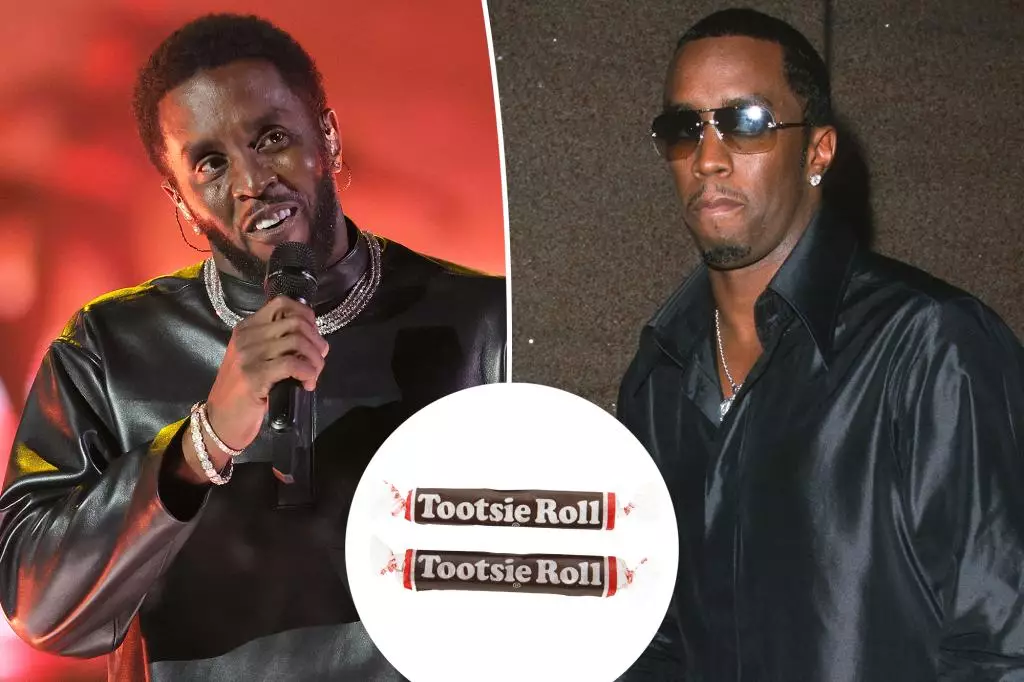In the world of entertainment, few names shine as brightly as Sean “Diddy” Combs. A titan of hip-hop and an entrepreneurial force, Combs has built a dynasty fueled by music, fashion, and lifestyle ventures. However, along with fame comes a darker underbelly. The recent allegations of sexual misconduct against Combs serve as a profound reminder of how celebrity status can complicate personal accountability. Allegations cannot be dismissed lightly, for they unravel not just a narrative, but draw attention to systemic problems that plague various industries.
Allegations Made Public
In a shocking lawsuit, a woman, referred to as Jane Doe, has accused Diddy of rape, claiming that the incident occurred in July 2001 after what seemed like an innocent encounter at a club. The details, while graphic, elucidate a troubling power dynamic often present in similar allegations. Jane Doe’s account suggests a pattern of coercion: from an initial night out to being allegedly trapped in a private space, the circumstances are disturbingly familiar for many survivors of sexual assault. Her description of the encounter—detailing Combs’ physicality in a peculiar manner—also highlights a cultural commentary on objectification and the symbolic language often employed when discussing men’s bodies.
This case serves as a stark reminder of the grey areas present within human interactions, where attraction can quickly devolve into violation. Jane Doe has also communicated the emotional fallout resulting from this traumatic experience. Her pursuit of therapy to cope with the alleged psychological and physical trauma reinforces the notion that these allegations extend beyond mere legal battles; they reflect a deep, personal struggle for healing.
The Backlash of Fame
Diddy’s response to the accusations is as notable as the allegations themselves. His insistence on innocence reaffirms a broader discourse on celebrity culture where public figures often maintain an air of invincibility. An attorney’s statement suggesting that accusations are a product of opportunism raises ethical questions about the responsibility of powerful individuals to acknowledge their impact.
Fame and power can create a shield, and the implications of such protection may perpetuate harmful behaviors. The mechanism of legal proceedings should, ideally, expose the truth but often falls short, leaving victims’ voices muffled under the weight of fame and financial muscle. While Diddy’s representatives proclaim confidence in the legal process, it is crucial to remember the significant burden placed on survivors who dare to speak out. Their stories are sometimes met with skepticism or worse, dismissal, reflecting societal biases that often favor the powerful over the powerless.
The Cultural Implications
The timing of this lawsuit amid ongoing discussions surrounding sexual misconduct in the entertainment industry is telling. As societal awareness grows, so too does a collective demand for accountability. Survivors, like Jane Doe, are increasingly daring to share their stories, telling us that silence is no longer a sustainable option.
This situation brings to the forefront an essential dialogue about consent and the complexities wrapped within intimate encounters. Every individual should be able to expect their boundaries to be respected, regardless of the other person’s status. Allegations like this can serve as a clarion call to dismantle the silence that surrounds sexual violence, encouraging other survivors to lend their voices to the bustling discourse.
As this lawsuit unfolds, we can only hope that it sparks broader discussions about consent, power dynamics, and the broader issues of misogyny that persist within the entertainment sector and beyond. The layers to this narrative are profound—the stories of both the accused and the accuser offer complex insights into human behavior, societal expectations, and the obligation to confront uncomfortable truths. In the end, justice must seek to find a balance in these often fraught interactions, as we navigate the murky waters of truth in a world that celebrates both talent and infamy.

Leave a Reply